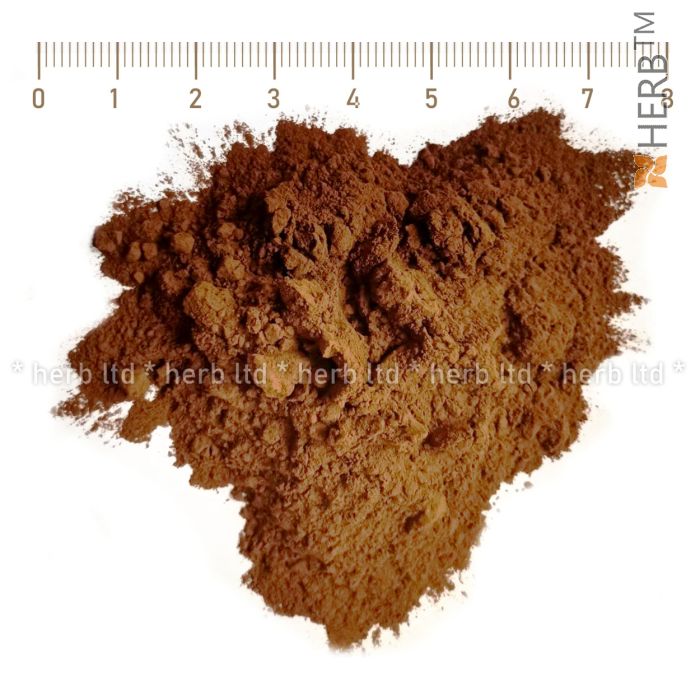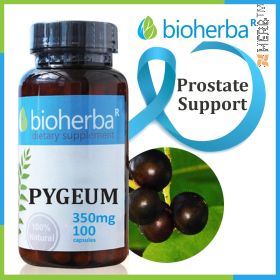Pygeum bark powder, Prunus africana
- Производител: Herb Ltd
The bark of Pygeum (Pygeum africanum) is widely used today for benign enlargement of the prostate and other diseases of the urinary tract
In Africa, pygeum bark is traditionally chewed or powdered and drunk as a tea to help with conditions such as:
Prostate problems
Urinary problems
Bladder discomfort
Kidney disease
Chest pain
Stomach pains
Malaria
Symptoms of fever
"Madness"
Pygeum benefits
Pygeum bark is rich in phytosterols, fatty acids, pentacyclic triterpenes and ferulic acid esters. There is some promising, preliminary data on the pentacyclic triterpenes and ferulic acid found in pygeum bark as anticancer compounds and other pygeum compounds (atraric acid and n-butylbenzenesulfonamide) as hormone blockers.
In prostatitis (BPH): Pygeum extract reduces the growth of prostate connective tissue cells in patients with prostate enlargement by reducing the production of growth factors and blocking their function.
Origin of the herb Pygeum
Pygeum (commonly known as Pygeum africanum) is an evergreen tree native to the African forest regions, the mountains of Central and South America, the Gulf of Guinea, and the islands of Madagascar and Comoros. It can grow up to 30 m tall. Its thick leaves are oblong in shape, dark green and glossy and smell like almonds when crushed. Its flowers are small and white, and the fruit is a red berry that resembles a cherry when ripe. The bark has an odor resembling hydrocyanic acid, and is the part of the plant used medicinally; bark can be red, brown, or gray, with red often indicating younger wood and darker colors indicating older wood. Bark also has the unique ability to regenerate as long as the vascular cambium is not destroyed.
How to use Pygeum bark powder
Half a teaspoon of Pygeum is poured with 500 ml of boiling water and steeped for 5 minutes. Strain and drink twice a day, 20 minutes before meals at room temperature. Used for at least 40 days or longer.
The average recommended dose is usually 100 to 200 milligrams per day, especially for prostate conditions.
We advise you to consult your doctor.
Composition
Pygeum powdered bark (Prunus Africana).
Possible side effects and risks
Studies have shown that Pygeum is mostly safe when used correctly. In some people, side effects may include:
stomach disturbances
nausea
diarrhea
constipation
If this happens, you should reduce the dose or stop using it.
You should not use Pygeum if you are pregnant or breastfeeding. Pygeum is also not labeled as safe for children and should not be given to them. More research is needed to determine if it is safe in these cases.
You should always talk to your doctor before taking any herbal supplement. He or she can best determine whether Pygeum will be right for your health needs and discuss any potential risks. A healthcare professional can provide more information about dosage.
Origin
Cameroon


